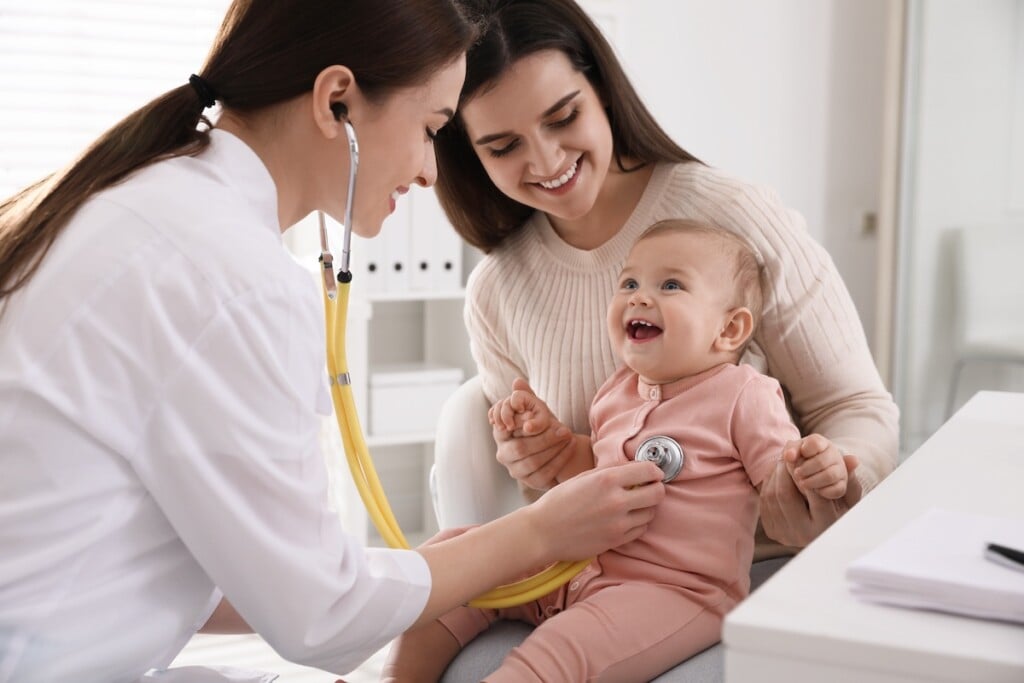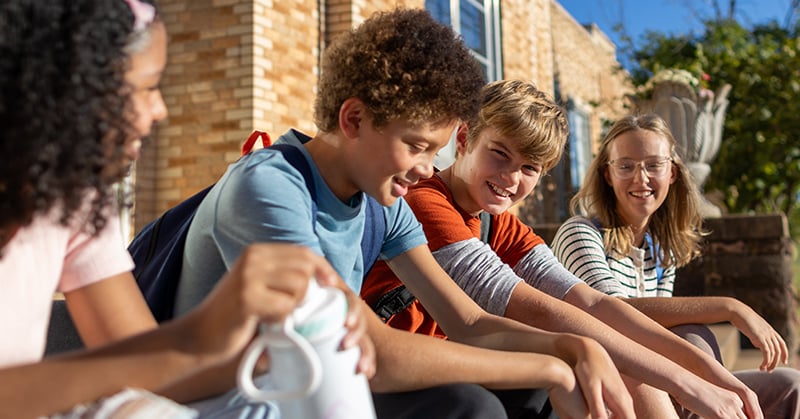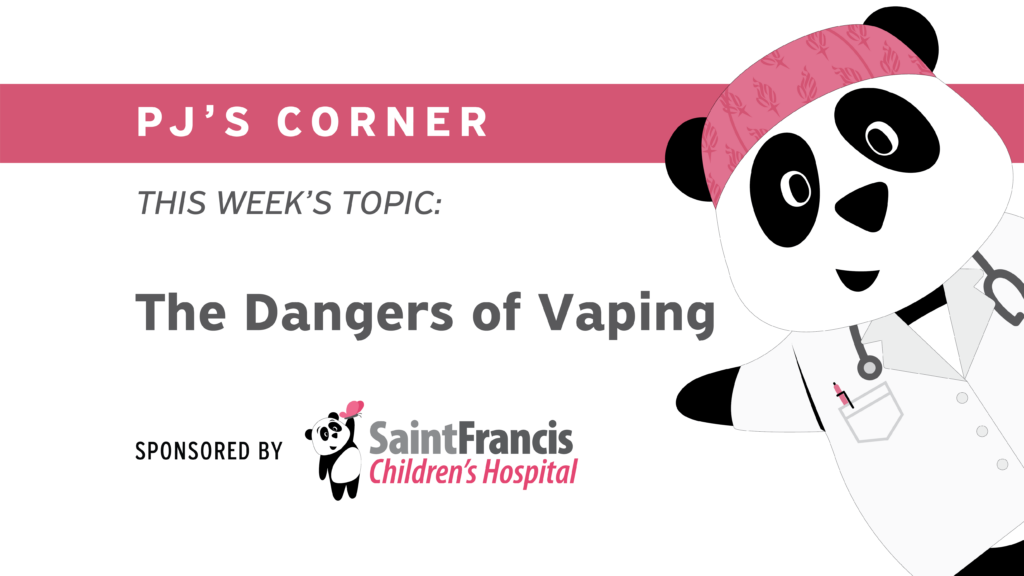Your Child and ADHD
Sponsored by Saint Francis Children's Hospital
Tammi Lahr, DO, a pediatrician with Saint Francis Children’s Physicians, answers common questions about kids and ADHD.
Q: What are some of the most important signs you look for when diagnosing ADHD in children?
A: When we look at kids, we’re looking for more than just “busy” kids. We’re looking for impairment in the home environment or school. Which, in younger kids can look like climbing on a table and jumping off when they’re supposed to be sitting in reading time, or older kids forgetting to turn work in and getting distracted. It varies, but the commonality is a level of impairment in multiple environments.
Q: How do you work with parents to develop a diagnosis?
A: It depends on the family. One of the easiest ways is to use a Vanderbilt screener. It’s a validated screener that’s quick and simple for teachers and parents to fill out. There’s a teacher form and a parent form, and it asks very similar questions. There are also more detailed screeners. Parents can also see a psychologist and have a full panel of psychoeducational testing. That can be done through a school. If there’s significant impairment, the school will often provide that. And if the parent just wants more information or if there’s a concern for learning disorders or overlapping mental health concerns, we send patients to a psychologist for that.
Q: How much of ADHD is genetic vs environmental? And what factors might make symptoms worse?
A: About 1 in 4 kids with ADHD have a parent with ADHD, so there’s a genetic component involved. There are some environmental factors such as prenatal exposure to nicotine or alcohol that raises risk. Lead exposure in your environment changes your neurodevelopment as well, and can increase your risk for ADHD. Recurrent concussions or a disruptive home life as a young child raises your risk as well.
Q: What are some of the effective treatments for ADHD, and how do you decide between medication and behavioral therapy?
A: A lot of it is in conjunction. Doctors discuss medication and therapy with parents. Most of our studies show that counseling is effective with younger kids, and older kids benefit from that as well. But stimulant medicine has shown to be the most effective. However, some families don’t feel comfortable starting there. So we have a discussion, decide on their comfort level and go from there.
Q: What strategies can help people with ADHD manage daily tasks?
A: Here are a few simple things:
- Daily schedules. Keep the same routine every day in the same order. Routines are easier.
- Cut down on distractions. This one can be difficult, but limit distractions when kids are expected to pay attention.
- Organize your house. Make sure you put things where they belong so you can find them again.
- Reward positive behaviors. Telling them what a good job they did reinforces them to do that again and again.
- Set small and attainable goals. Giving your child multiple steps makes it harder to follow through. Use charts and checklists for older kids. Give them specific steps to follow.
- Keep instructions brief.
- Limit choices. Don’t give younger kids 10 options; give them two options. That way, whatever they choose will be an OK ending for the parent and the child.
- Use calm discipline. Try not to overreact when something doesn’t go the way that you hope it will.
- Reach out to teachers. Staying in communication with them can help avoid some of those concerning behaviors.
Q: What are the biggest myths or misunderstandings about ADHD?
A: There are many. A lot of parents think they have a lazy or unmotivated child. This kid may really want to perform well, but it’s because they can’t stay on task. Or parents will say, “They’re just a daydreamer. They can’t pay attention.” My favorite description is, they say, “Oh, squirrel!” The kids are easily distracted.
Sometimes parents believe that a medication will “cure” the ADHD. The child takes the medication for a short period, and then it goes away. That doesn’t actually happen, sadly, for everybody.
And then another favorite is, “They have no problem staying on task and paying attention on their video games.” Fun activities activate our brain differently. So, kids with ADHD truly can focus when they’re doing something really engaging and fun. Something challenging like schoolwork or a chore doesn’t activate our brain the same, so parents just see it as something they don’t want to, whereas it’s different for their brain.
I do feel bad for families. Sometimes they think it’s poor discipline or they just didn’t parent correctly. We know that’s not accurate.
Q: What resources might be available to those parents once they have a diagnosis?
A: There are some very good online resources. The simplest place is to go to healthychildren.org, run by the American Academy of Pediatrics. You can go to an ADHD checklist topic by topic. Another good website is understood.org.
Depending on insurance, I help direct parents in the Tulsa area to therapists. Some schools have embedded counselors, so that’s another good resource to look for.
Q: Does ADHD typically change or get better as a person grows older? And what does that long-term management look like?
A: When we hit puberty, our brain changes. So, hormones kick in, and about a third, give or take, of kids improve. They need less medicine, or they’ve learned enough techniques to manage their symptoms without medication. About a third stay the same and continue with the same treatment plan. And a third may need a little bit more assistance or more medication or interventions. As kids pass through puberty, we work with families to see what their child needs.
A good portion, 80-85%, of kids with ADHD are adults with ADHD. Whether or not they continue to need medication is up to how they’re functioning in a work environment or college.
Q: So, if parents have questions, they should start with their child’s healthcare professional?
A: Yes. We’re trained as pediatricians to help direct families. Oftentimes we can provide diagnosis or treatments as needed and then refer from there.




